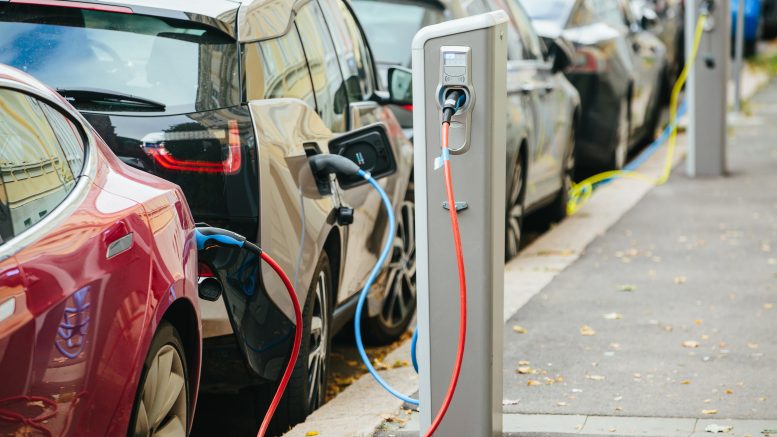Belgium-based Umicore, a circular materials technology firm, plans to invest $1.5 billion to build a manufacturing plant in Ontario for cathode active battery materials and their precursor ingredients.
The company aims to start construction in 2023 and kick off operations at the end of 2025, with the goal of supplying battery components to about 1 million electric vehicles a year by 2030.
Umicore signed a memorandum of understanding (MOU) with the Canadian government to finalize details of the federal support it will receive for the project. The plant will be situated in the province’s Loyalist Township, about 18 km west of the city of Kingston.
“We have reached a deal with Umicore to build a new battery facility in Loyalist Township,” Prime Minister Justin Trudeau said at a press conference in Kingston. Once the plant is up and running, Trudeau said, it will provide “a thousand jobs during construction and hundreds of good long-term positions.”
Trudeau described the investment as “big news, adding that “Canada isn’t just going to be a global player in electric vehicles, with this and other announcements we made, we demonstrate that we get to be global leaders.”
The MOU finalizes the support application of the project under the Strategic Innovation Fund, and follows a recently signed agreement with Loyalist Township to secure a 350-acre plot of land.
Canada has upped its efforts of developing a battery eco-system as prices of battery metals have risen in recent years due to high demand for electric vehicles. Its latest federal budget allocated $3.8 billion for the Critical Minerals Strategy, over eight years to develop electric vehicle components such as batteries and permanent magnets.
In March, Canada announced that auto-maker Stellantis N.V. (NYSE: STLA) and LG Energy Solution would invest over $5 billion to build a large battery plant in Windsor, Ont. The plant is expected to have an annual production capacity of over 45 gigawatt hours to produce lithium-ion battery cells.
The mineral-rich nation, however, still lags behind its competitors in China and the U.S. in the battery sector, experts say.
Umicore CEO Mathias Midreich, pointed to Canada’s clean energy, its resource endowment and the availability of a highly skilled workforce as the reasons behind the company’s decision to build a plant in Ontario.
“This plant gigafactory will be the first of its kind in North America…because it’s going the full way,” he said. “It’s not only doing the end product, which is the cathode material, it’s integrated…from mine to battery including all the upscale steps.”
Midreich noted that the company plans to include refining and recycling in the later steps and said the plant will be the “missing link” between Canada’s natural resources sector and the electric mobility value chain.
Umicore currently serves its battery materials customers in Europe through its cathode precursor and cobalt refining plant in Kokkola, Finland, and its battery materials plant in Nysa, Poland. In Asia, Umicore runs plants in Jiangmen, China, and Cheonan, South Korea.
Trudeau noted that Canada’s investment in the battery sector would help improve the lives of Canadians.
“There is more to do… part of that more to do is to make sure that our economy moves forward in a way that is less dependent on fossil fuels, that’s where investments like we are announcing today…are going to keep our economy growing with better jobs,” he said.


Be the first to comment on "Umicore to build $1.5-billion battery materials factory in eastern Ontario "